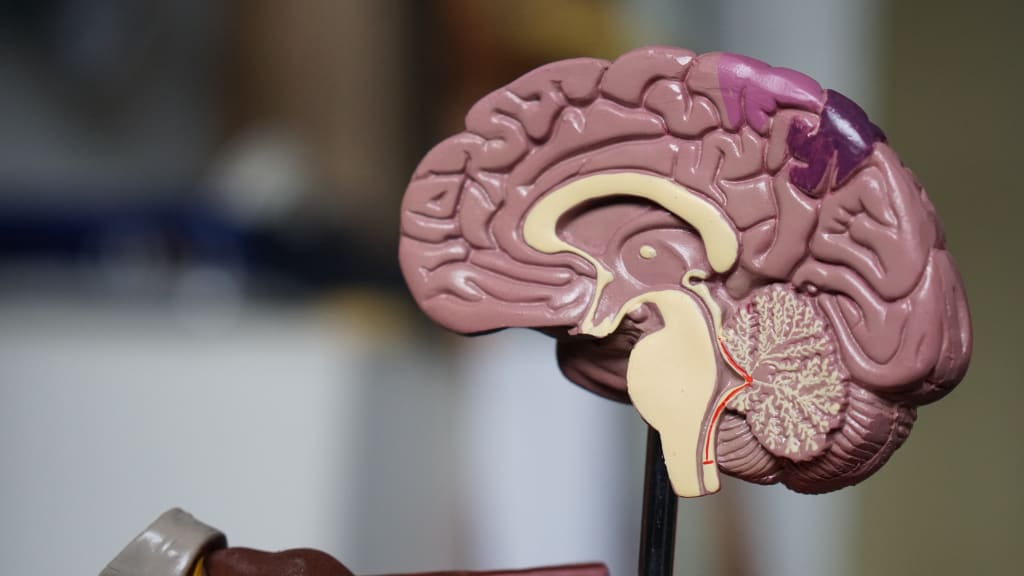My Journey Inside Seven Twisted Psyches
Exploring the Depths of Darkness in a Quest to Understand the Unthinkable

Psychopathy Is Caused By A Combination Of Heredity And Traumatic Early Life Events .
Recent technological advancements have allowed us to make significant advances in our knowledge of psychopaths like Ben. It is now feasible to see inside the minds of psychopaths and look about, thanks to high-quality brain-imaging technologies like MRI scanners.
According to the results of these scans, two brain areas in particular seem to play a major role in psychopathy. The first is the prefrontal cortex, which is in charge of making wise judgments and forecasting how society will react to our actions, among other things. The amygdala, on the other hand, is engaged in emotion regulation.
Both of these areas are much less activated in psychopaths. This makes sense since we know that decreased activity in these regions is associated with an inability to perceive emotions such as fear, contempt, and sorrow in faces. That would explain why psychopaths struggle to react to the anguish of others with the right amount of empathy. You can't be sympathetic to someone if you don't even know they're in trouble.
So it seems that we have identified the neurological causes of the issue. There is, however, one catch. Not everyone with a psychopathic brain is a criminal or even a risk to themselves. Many people live perfectly regular lives. Dr. James Fallon steps in.
Dr. Fallon is a well-known academic and neuropsychology professor. He was looking through a series of brain scans collected during one of his research projects when his attention was drawn to one that seemed out of the ordinary. The scan indicated that the prefrontal cortex and amygdala had very low activity.
"Wow, this guy's a complete psychopath," Dr. Fallon thought at first. But then he realized that this scan was meant to be from one of the healthy control patients. When he examined the ID in the database, he was astounded to realize that they belonged to him.
When he followed up on this finding with a DNA test, it simply confirmed his darkest fears. Not only did Dr. Fallon have an unusual variant of the MAOA gene, which is generally seen in serial killers, but he also had a few of murderous distant relatives.
Fortunately for Fallon, the finding that he had the genetic and neurological profile of a violent psychopath did not seem to have harmed his career; in fact, it gained him a story contract and a lot of attention. The narrative does, however, underline one point: genes aren't everything. Yes, genetic composition influences how a person develops, but experience is as significant.
The truth is that almost no criminal psychopath ever had a totally safe and healthy upbringing. In virtually all situations, violent psychopaths originate from a highly dysfunctional upbringing, either via neglect or abuse.
As a result, there is no straightforward solution to the issue of what constitutes a psychopath. It all comes down to a complicated interaction between a person's genes and their early life experiences, both of which contribute to the development of the mature adult brain.
Prisons often worsen psychopaths' symptoms and make them more difficult to control.
Looking inside a psychopath's brain, as valuable and intriguing as it is, can only ever provide us only a partial view of what's going on. We need to get up close and personal with psychopaths if we want to understand what motivates them and shapes their worldview.
The difficulty is that meeting psychopaths in the real world is difficult. For starters, they are uncommon. They also have a tendency to slip under the radar until they commit a significant crime. That's why the majority of psychopaths we know are in the criminal justice system - in jails and hospitals all around the globe - and these aren't exactly great settings for study.
Aside from the annoyance of having to travel through high-security checkpoints every day, the broader issue is that these venues aren't really neutral environments. Inmates tend to bring out the worst in psychopaths. After all, these individuals are confined, often surrounded by other psychopaths, and are eager to go to any length to escape.
Take a look at Paul's narrative to get a sense of how ineffective jails may be at containing psychopaths.
Because Paul was reared in a criminal household, he was raised in the criminal underground from an early age. Paul used various masks during his criminal career. He worked as a debt collector for loan sharks, torturing his victims to get money. He also sold narcotics and used his clients' addictions to coerce them into doing his bidding. Paul was a true manipulator by profession; he knowingly and willingly utilized people as a means to a goal. He brought this employment with him to jail.
There's something you need to know about Paul before you can comprehend what occurred next. If you met him on the street and knew nothing about his violent history, you'd assume he was a really nice guy. He was attractive, chatty, and extremely excellent at making you believe he was interested in you. He was attractive enough that he persuaded Louise, one of the prison's highest-ranking officials, to have an affair with him.
The relationship began slowly, with Paul sometimes delivering praise. He then convinced her to fetch him a magazine from home. This led to further gifts: a CD, cigarettes, and pornography. Their connection got personal at some time, which was amazing considering the prison's abundance of CCTV cameras. They had sex after hours in the laundry area, and she brought him a regular supply of contraband to sell in the jail.
When the affair was uncovered, Louise was charged with misbehavior, thus ending her career. Unfortunately, what happened to Louise was not an isolated incident. Three such cases were recorded in different UK jails and hospitals during the following several years. In each instance, a female staff member had an affair with a male psychopath under her care. In each of these instances, the lady was charged with wrongdoing, and her career was devastated.
Paul's experience exemplifies psychopaths' special capacity to warp the moral norms of the organization that is intended to keep them in check. It should also serve as a reminder that everyone who deals with psychopaths, no matter how seasoned, is vulnerable.
About the Creator
Esther Anima
My stories are not just ink on paper; they are the echoes of my dreams and the whispers of my deepest passions. Join me on this literary voyage, and together, we'll explore the vast universe of human experience, one word at a time.






Comments
There are no comments for this story
Be the first to respond and start the conversation.